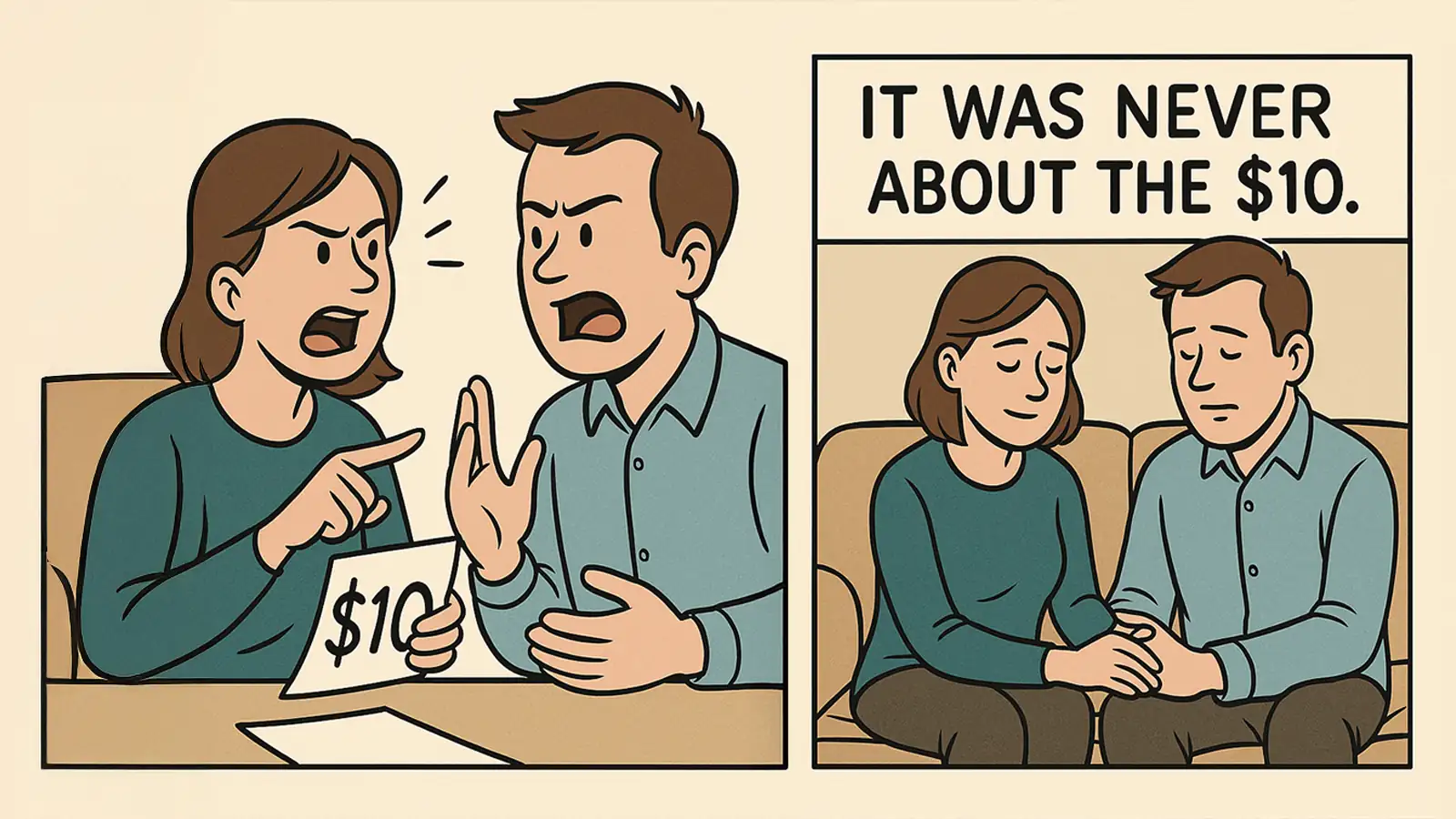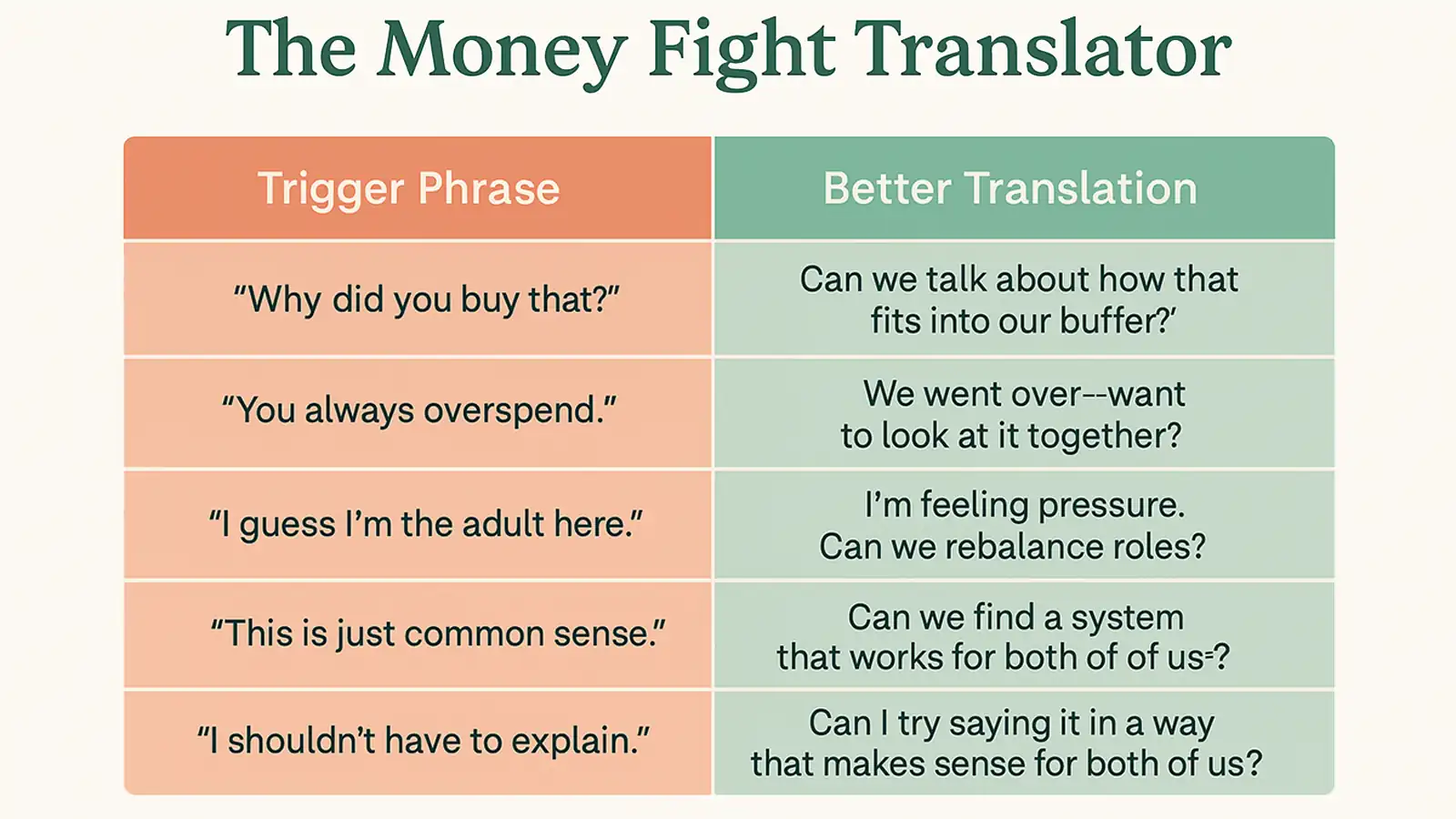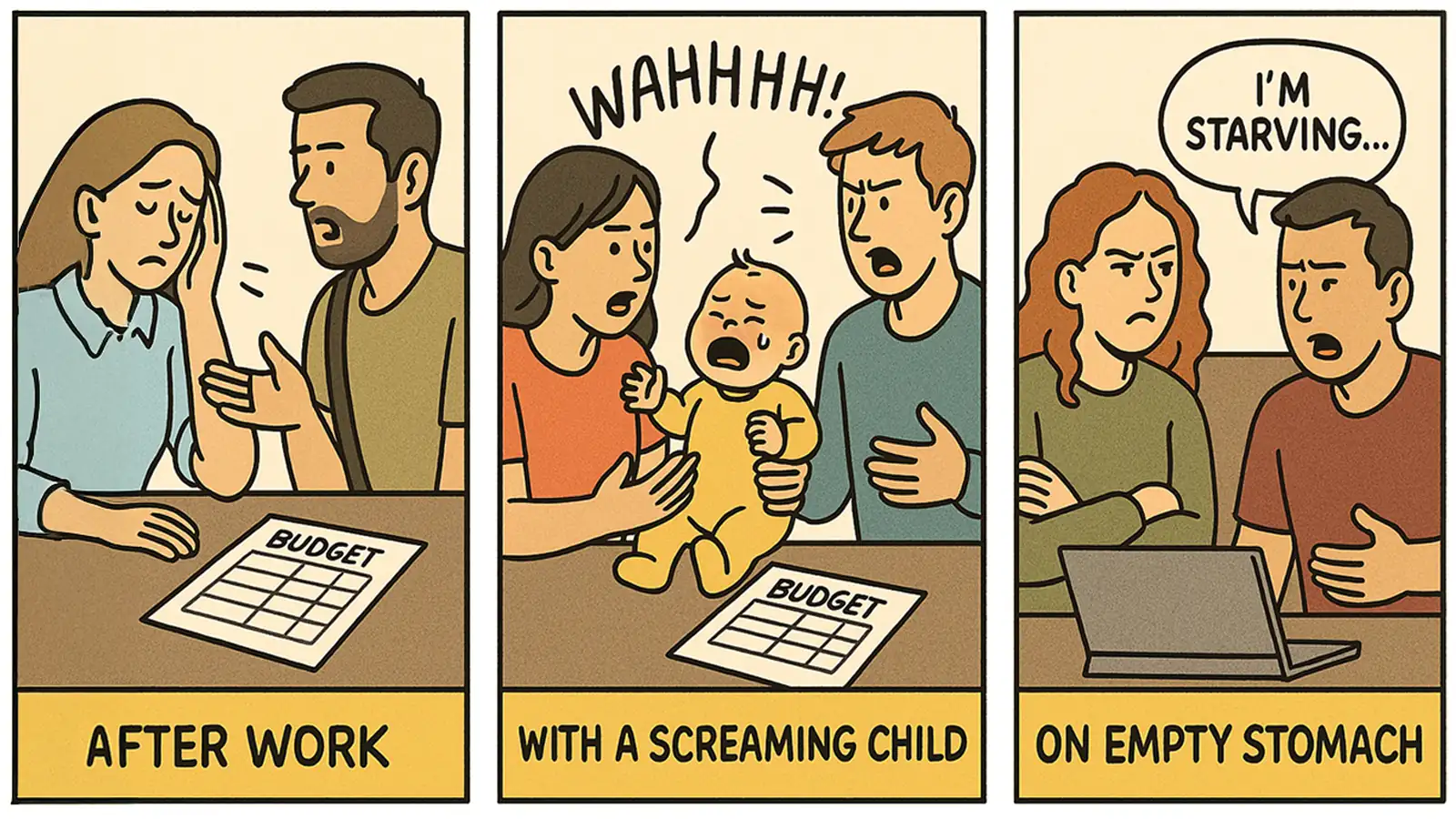How to Talk About Money Without Triggering Each Other’s Nervous Systems (Especially in ND/NT Relationships)

Most couples argue about money. But for ND/NT couples, it’s not just about the dollars—it’s about the nervous system hijack that happens mid-sentence.
• Why ND/NT couples fight differently about money (hint: it’s not just about spending)
• How to avoid triggering each other’s nervous systems during “the talk”
• Scripts, safe environments, and rituals that help rebuild connection
• A 3-step action plan you can try this week—even if things feel tense
Last month, a reader messaged us on Facebook and after a brief conversations mentioned: “My boyfriend asked why I needed another subscription box. I completely spiraled and ended up sobbing in my car for like an hour. I knew it was stupid. But in that moment, it felt like he was gonna dump me over $27- to be fair it was $27 a month.”
That’s not poor money management. That’s what happens when one nervous system hears feedback and another hears rejection.
According to a 2023 survey by Fidelity, 57% of couples argue about finances. But when one partner is neurodivergent (think ADHD or autism) and the other is neurotypical, money talks can feel like navigating a minefield in the dark, blindfolded, while juggling unpaid bills, resentment, and a toddler covered in marker.
We’re not just budgeting. We’re regulating. Together.
ND/NT Couples Fight Differently About Money
Rejection Sensitivity + Blunt Feedback = Emotional Landmine
When an ADHD partner hears, "Why did you spend that?" it doesn’t feel like a question—it feels like a rejection letter from the person they love most. RSD (Rejection Sensitive Dysphoria) doesn’t ask for logic. It activates like a trap door.
Sensory Overload Kills Productive Conversation
Trying to talk money while the microwave beeps, the baby cries, and the HVAC hums? That’s a shutdown cocktail. Even mild sensory clutter can break a brain already trying to mask or manage.
Missed Cues, Power Imbalances & Emotional Flooding
NT partner: "I didn’t yell." ND partner: "I heard judgment in your tone, I couldn’t track all your words, and now I’m frozen."
If only one partner adapts or initiates repair, resentment builds. Add financial pressure, and these fights aren’t about budgeting—they’re about belonging, safety, and control.
The Fight Delay Toolkit: Actually-Usable Tactics for Burned-Out Humans
Start Here: A Real-World Entry Point
If one partner is shutdown-prone, and the other is logistics-driven:
- Text them this: "I want to talk about money stuff in a way that doesn’t overwhelm either of us. Can we pick a time that feels okay?"
- Set a timer for 15 minutes.
- End the talk with a buffer ritual: walk, dance break, cookies, whatever signals we made it through.
True story: One couple we spoke to had a full meltdown over $11 in delivery fees. It wasn’t about the $11. It was about who felt like the adult. And who didn’t.

Don’t Wait for a Crisis. Schedule It Like Trash Day.
Find a recurring time when no one is starving, overstimulated, or sleep-deprived. Call it "Money Sync," "Team Check-In," or "The Money Taco Tuesday." Brains like patterns.
One queer, poly household does it Sunday nights—with coloring books. Budget in one hand, markers in the other.
Safe Phrases That Interrupt the Spiral
- "I’m overwhelmed. Can we pause for 10 minutes?"
- "This matters to me. Can we try again later?"
- "Can we text this? I need more time to process."
These aren’t avoidance. They’re emotional CPR.
Sensory-Smart Spaces for Money Talks
- Talk on a walk (yes, even if it's raining)
- Budget in a car (enclosed = safety)
- Use fidgets, weighted lap pads, low lighting

One parent with ADHD said: "We budget during Minecraft. I can focus when my hands are busy."
Add the Ritual or You’ll Resent the Talk
After a tough convo:
- Watch a comfort show
- Play a 5-minute game
- Literally say: "That was hard. Thanks for sticking through it with me."
The Money Fight Translator
| Trigger Phrase | Better Translation |
|---|---|
| "Why did you buy that?" | "Can we talk about how that fits into our buffer?" |
| "You always overspend." | "We went over—want to look at it together?" |
| "I guess I'm the adult here." | "I’m feeling pressure. Can we rebalance roles?" |
| "This is just common sense." | "Can we find a system that works for both of us?" |
| "I shouldn’t have to explain." | "Can I try saying it in a way that makes sense for both of us?" |

Pro tip: Save these as a Note in your phone. You will forget them when you need them most.
When NOT to Talk About Money
- Right after work
- When kids are melting down
- If either of you hasn’t eaten
- During PMS, sensory spikes, or burnout hangovers

Start with 60 seconds of safety. That’s all you need.
Also? Not all money fights are communication problems. Some are about:
- Financial insecurity
- Childhood trauma
- ADHD-related impulse spending
- Class privilege, gender roles, or executive function mismatches
And sometimes, you need more than a script.
The Real Cost of Avoiding These Talks
Avoiding money conversations costs couples more than tension.
- 💸 Missed subscriptions or overdraft fees = $300–$600/year
- 💸 Resentment-fueled impulse spending = +10% unplanned expenses
- 💸 Avoiding joint goals = delayed savings, missed wealth compounding
- 💸 Power imbalance = financial abuse or long-term dependency
One couple ignored budgeting for 18 months. When they finally looked, they’d racked up $4,200 in late fees and duplicate payments.
What to Do Next (Your 3-Step Action Plan)
- Print Out the Money Fight Translator PDF
Or make your own using the table above. - Pick a day this week for a 15-minute Money Sync.
Use the exact script: "Can we talk about money this week in a way that feels safe for both of us?" - Create a 3-Item Cooldown Menu.
- Movie you both love
- Favorite snack
- One-liner you say after every talk: "We don’t have to be perfect. Just connected."
Final Thought
Money isn’t just math. It’s how your nervous systems ask, “Are we safe together?”
You don’t need a perfect system. You need a repeatable repair process. And the willingness to say: "I love you more than I fear this conversation."
"We once fought about $11 in delivery fees. It was never about the $11. It was about who felt alone in the hard parts of adulthood."
If that’s where you are? You're not broken. You're human. And you're not alone.

“I LOVE YOU MORE THAN I FEAR THIS CONVERSATION."
Disclaimer: As ALWAYS, this article is for educational and motivational purposes and is not financial advice. Always consider consulting with a financial professional for guidance tailored to your unique situation.
Learn how to talk about money with your ADHD or autistic partner without triggering shutdowns, emotional flooding, or resentment. Real strategies for ND/NT couples, including safe scripts, environment tips, and a 3-step action plan.




